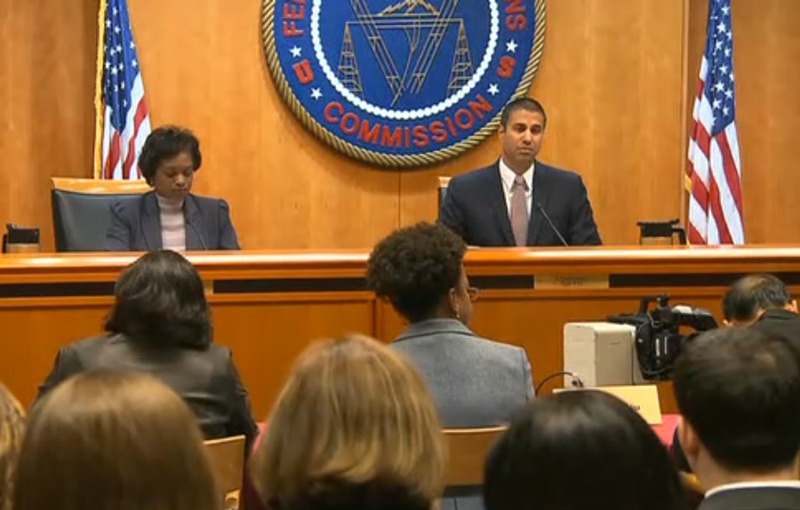The Title II protections that currently enforce net neutrality among U.S. internet service providers will disappear on Apr. 23, unless another party is able to intervene.
The deadline was revealed in an update of the U.S. government's Federal Register, spelling out when the Federal Communications Commission's "Restoring Internet Freedom" order will take effect. The controversial decision allows ISPs to block or prioritize internet traffic as they see fit, the only real safeguard being that these actions must be publicly disclosed.
"Finding that transparency is sufficient to protect the openness of the internet and that conduct rules have greater costs than benefits, the Order eliminates the conduct rules imposed by the Title II Order," the Register entry says.
The Title II revocation could theoretically be undone by an upcoming battle in Congress, but that's likely to be won by Republican opposition, including President Donald Trump. In the meantime 22 state attorneys general have filed a lawsuit, and various public interest groups are taking action. The California Senate recently approved a net neutrality law of its own.
Even under net neutrality some ISPs have been practicing "zero-rating," in which certain services don't count against monthly data caps. T-Mobile for instance exempts some video services — but not others — as an incentive to subscribe. The trouble is that this gives established platforms an inherent advantage, and can make it harder for new services to gain a foothold.
ISPs have nevertheless been caught throttling traffic from the likes of Netflix and YouTube, looking to manage bandwidth without investing in infrastructure upgrades. A purely neutral approach would see those services operating at full speed whenever possible — creating intense data consumption as video increasingly switches to 4K resolution.
 Roger Fingas
Roger Fingas








 William Gallagher
William Gallagher
 Wesley Hilliard
Wesley Hilliard
 Christine McKee
Christine McKee

 Andrew Orr
Andrew Orr


 Andrew O'Hara
Andrew O'Hara







39 Comments
We have made a conscious decision to keep this thread open.
I think this measure will have its intended positive effects in the form of encouraging private investment in infrastructure—especially in rural areas.
It may not happen soon enough, but it will happen.
Good!
Oh, and by the way, THIS is happening:
http://www.ibtimes.com/elon-musk-spacexs-internet-satellite-company-has-name-logo-2591532